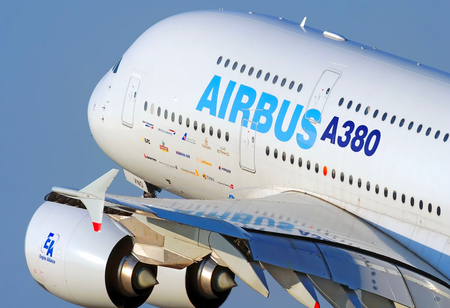By Global Consultants Review Team
 Airbus is setting its sights on significant growth in the Middle East, driven by the region's rapidly expanding aviation market. With robust demand for air travel and increasing investments in airline infrastructure, the Middle East has become a pivotal hub for global aviation. Industry analysts attribute this growth to rising passenger numbers, strategic geographic positioning, and increased tourism and business travel.
Airbus is setting its sights on significant growth in the Middle East, driven by the region's rapidly expanding aviation market. With robust demand for air travel and increasing investments in airline infrastructure, the Middle East has become a pivotal hub for global aviation. Industry analysts attribute this growth to rising passenger numbers, strategic geographic positioning, and increased tourism and business travel.
Airbus sees this as an opportunity to deepen its footprint in the region by strengthening partnerships with local carriers and delivering advanced aircraft tailored to meet the specific needs of Middle Eastern airlines. The company has already seen success with its A350 and A321XLR models, which offer fuel efficiency and extended range—critical factors for long-haul routes connecting the region to the rest of the world.
Middle Eastern airlines such as Emirates, Qatar Airways, and Etihad Airways continue to expand their fleets, focusing on modern, eco-friendly aircraft to align with global sustainability goals. Airbus plans to capitalize on this trend by promoting its next-generation aircraft that reduce emissions and operational costs.
The region's aviation sector is also expected to benefit from mega-events like Expo 2030 in Saudi Arabia and expanding tourism initiatives, further solidifying its role as a global transit hub. Airbus's strategic focus on the Middle East underscores its commitment to supporting regional growth and maintaining its position as a leader in the global aerospace industry.
As the aviation market soars, Airbus is poised to take flight alongside it, cementing its role in the region’s future.
We use cookies to ensure you get the best experience on our website. Read more...